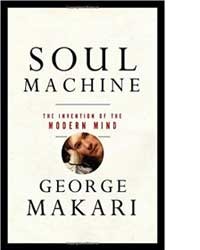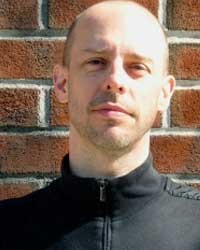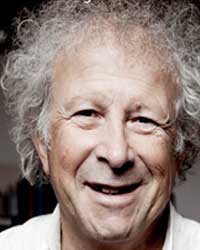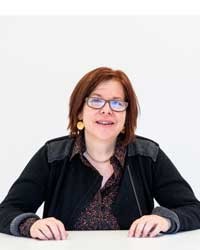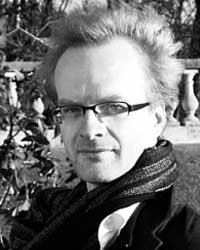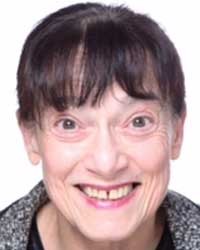A Panel for the Launch of George Makari’s “Soul Machine: The Invention of the Modern Mind”
The New School Ferenczi Center hosts George Makari in conversation with Das Unbehagen on the topic of his new book Soul Machine: The Invention of the Modern Mind Following a brief introduction, Dr. Makari will engage Das Unbehagen interlocutors: Drs. Victoria Malkin, Orna Ophir, and Will Braun in a lively conversation moderated by Jeremy Safran and Jill Gentile *Come early to join us for wine and Cheese at 7:30. More informaiton and RSVP Makari Event
What is (Das) Unbehagen?!
(Das) Unbehagen is a collective for those who love psychoanalysis including clinicians, academics, artists and intellectuals. It is an association formed for the investigation of psychoanalysis free from the constraints of theoretical allegiance, institutes and other authorizing bodies, including local and national organizations.
Scott Von: THE PSYCHOSOMATIC SYMPTOM: BETWEEN PSYCHOANALYSIS AND MEDICINE
Dr Scott Von is a psychoanalyst and physician and Director of the New Clinic for Integral Medicine and Psychiatry in New York. He has taught as a professor at NYU, CUNY, Pacific College, and ACTCM Medical School, and is a member of Apres-Coup Psychoanalytic Association. He is also a poet and artist currently represented by the Cabinet Gallery in London where he has produced the four volume multimodal work Autopoesis. He is the author of the forthcoming Schizoanalysis: Chaos & Complexity in Clinical Practice and Orgonomy: Integral Medicine & Psychiatry.
Guy Dana: ON PSYCHOSIS
Guy Dana is a psychoanalyst and psychiatrist practicing in Paris. He directs the psychiatric services of the Hospital of Longjumeau. A member and a former president of the Cercle Freudien and a co-founder of Convergencia, he is the author of many articles on psychoanalysis and psychiatry and of the book Quelle politique pour la folie? Le suspense de Freud (2010).
Elissa Marder: KNOCK KNOCK: FEMININITY, FIXATION, PHOTOGRAPHY
Professor Elissa Marder (Emory University) – Dream and the Guillotine: Femininity, Photography and Other Scenes of Fixation What is the relation between the singular unreality of the world of a dream and the guillotine, that exemplary enlightenment machine that transformed the legal administration of capital punishment into a public spectacle of the moment of death? I read these two seemingly opposed and unconnected figures through each other in order to explore how Freud’s descriptions of the formal qualities of the dream-work enter into—and complicate—our understanding of how events and actions become visible and readable in the so-called real world. The dream and the guillotine communicate with one another because they both stage scenes of a very particular kind. The question of female ...Read More
Without History: EXPERIMENTS WITH CLINICAL CASE PRESENTATIONS
Unbehagen Case Presentation Event No. 1: “Without History” Saturday, January 10, 2015 Three analysts—Muriel Dimen, Patricia Gherovici, and David Lichtenstein—will present the same case based on a set of process notes from three analytic sessions. This event will explore aspects of the relationship between the patient, the individual clinician, and theory that are usually hidden by the conventional structure of the case presentation form. Other themes will include the effects of group dynamics on the case presentation experience and the ways in which case presentations may implicitly transmit essential aspects of the case, beyond what is explicitly intended. For full description, please read the attached PDF. Special thanks to Jason Royal who composed the attached PDF and who has conceived ...Read More
Marcus Coelen: PHILOLOGICAL PSYCHOANALYSIS? TEXTUAL AND CLINICAL QUESTIONS
Marcus Coelen – Psychoanalyst in Berlin and Paris; researcher affiliated with the University of Munich; editor and translator into German of Maurice Blanchot. “I would like to speak about “radical philology” in Freud. What I mean by this term is not so much the academic and institutional disciplines Freud admired and drew on, at times heavily (see e.g. the study on “The Uncanny”, “The Antithetical Meaning of Primal Words” or sections in “Totem and Taboo” or “The Man Moses”). It is, more importantly, a way of being affected by language itself, more precisely, in this ʻbeing affected by languageʼ what creates the contradictory necessities to stay attached, as closely a possible to the concreteness of the letter, but also to metamorphize i...Read More
Patricia Gherovici: TWO FUND(a)MENTAL CONCEPTS OF LACANIAN PSYCHOANALYSIS – THE PHALLUS AND OBJECT « a »
Four classes: May 22, 29, June 19, 26, 2014. Can psychoanalysis rethink sexuality without fully relying on the controversial and contested notion of the phallus? The simplest, schematic version of the Freudian Oedipal model offers a binary logic of having or not having it, of presence or absence: boys have it, girls don’t. For Freud, castration is a loss that women think they have suffered and that men fear. For Lacan, the phallus is clearly not the penis; for him castration is even a more fundamental loss affecting both sexes since both sexes are castrated. Nobody can have the phallus or can be it. In the mother’s body, nothing is missing. Lack is purely a logical limit—the mother is deprived of something she does not have. The phallus is the object that appears to veil a symbolic ...Read More
Patricia Gherovici: Two Fund(a)mental Concepts of Lacanian Psychoanalysis – A Course on The Phallus and object a
Can psychoanalysis rethink sexuality without fully relying on the controversial and contested notion of the phallus? The simplest, schematic version of the Freudian Oedipal model offers a binary logic of having or not having it, of presence or absence: boys have it, girls don’t. For Freud, castration is a loss that women think they have suffered and that men fear. For Lacan, the phallus is clearly not the penis; for him castration is even a more fundamental loss affecting both sexes since both sexes are castrated. Nobody can have the phallus or can be it. In the mother’s body, nothing is missing. Lack is purely a logical limit—the mother is deprived of something she does not have. The phallus is the object that appears to veil a symbolic lack. It should not come as a surprise that Lacan’s ...Read More
Marc Strauss and Jamieson Webster: PSYCHOANALYSIS AND THE OBSESSIONAL
Marc Strauss M.D. is a psychiatrist and psychoanalyst in private practice in Paris. He has worked for many years in a hospital for psychotic children, and as a consultant in Hospital Sainte Anne. He is a founding member of the International Psychoanalytical School of Forums of Lacanian Field and a teacher in Collège clinique de Paris. He has written many papers in psychiatric and psychoanalytical journals. Lecture Topic: If we want to speak of female obsessional neurosis we first have to know what obsessional neurosis is as such. This is not an easy question, because even the most characteristic symptom, such as the ritual or OCD, as it is called nowadays, belongs to the most different personalities. Indeed, what does someone who cries all day in thought of her dead father have in common w...Read More
Sandra Buechler and Victoria Malkin: SHAME IN ANALYTIC TRAINING
Sandra Buechler, Ph.D., is a Training and Supervising Analyst at the William Alanson White Institute in New York City. She also supervises at Columbia Presbyterian Medical Center and at the Institute for Contemporary Psychotherapy. A member of the editorial board of Contemporary Psychoanalysis, she is the author of Making a Difference in Patients’ Lives: Emotional Experience in the Therapeutic Setting (Analytic Press, 2008). She has written papers on the analyst’s experiences of loneliness, loss, joy, and other aspects of the clinician’s feelings. Victoria Malkin, PhD, LP, is a psychoanalyst in New York. She received her PhD in anthropology from University College London, She completed her psychoanalytic training at the William Alanson White Institute and the National Psy...Read More
- 1
- 2
